Then & Now: Randy Cipriano on
Joe Cipriano
Compiled By Dave Brandon
(Photo Courtesy NU Media Relations)
 Randy
Randy
Cipriano was an Assistant Coach at Nebraska from
1982-1986, and saw his teams go a combined 91-57 (.615)
while serving under Coach Moe Iba.
Cipriano
is the son of the late Joe Cipriano (Head Coach,
1964-1980), who is second on the all-time victories
list at Nebraska (253-197, .562).
Cipriano
is our latest guest in this special two-part/two-week
edition of "Then & Now."
HHC: Thanks
for talking with us about your Dad last week and for
joining us for a second installment about yourself this
week. You grew up in Lincoln, and were obviously around
Nebraska basketball a lot. What are some of your
favorite memories and teams?
RC: I really remember the players. I’m still
really good friends with Mike Naderer and Terry Novak,
and (Jerry) Fort, like I said.
As far
as the fanatic part, as far as do you remember this game
or that game, or this tournament, not really. I remember
the relationships and the friendships more than
anything.
HHC: You had
an outstanding career at Lincoln Southeast High School
under Coach Wally McNaught before ultimately going to
Kearney State under Coach Jerry Hueser. What was it like
being a coach’s son, and did your Dad encourage you to
play, or was that something you did on your own?
RC: My Dad’s philosophy was that if you
want to succeed, whether it is reading, basketball, or
dancing, whatever you do, do it because you want to do
it, not because someone else does. I don’t ever remember
him pushing me to play basketball.
HHC: Before
going to Kearney State, was there ever the thought of
you walking on at Nebraska?
RC: No. Coming out of high school, I
wasn’t even near good enough, although by my junior year
of college, maybe I would have been good enough.
But I
played against the players all summer long, and even
playing at Kearney, there is a big division between the
athletes, size, quickness, and speed. There were one or
two kids at Kearney that could have played D-1, and that
was it, and its still that way today.
HHC: At Kearney State, you scored 1,039
points and set Antelope season and career assist marks
of 150 and 329. You also led the team to the finals of
the 1978 NAIA Tournament and won the Hustle Award, along
with garnering All-Tournament honors. What were those
years like?
RC: Fantastic.
I was away from home, out on my own, my own person,
feeling my own way through life. Had some successes, and
got away from Lincoln a little bit. It was great, I
loved it. I played for a coach that gave me freedom to
grow up and be myself, and he knew we’d compete and
play, and we won a lot of games.
So, once
you get involved in a program, no matter what level, its
important to you. We should have won the national
championship my junior year, and I do remember we got a
bad call at the end of the game against Grand Canyon and
it cost us the game. The kid traveled and they didn’t
call it and we should have won. But you learn a lot from
that, too.
But as
far as Coach Hueser goes, I think that he had a lot of
influence on my life, and even some of his basketball
philosophies impacted me later.
HHC: What person prepared you most for
coaching?
RC: I had a really unique opportunity to
pick and choose what I liked since I was around so many
great coaches, so I don’t think I can be pin holed into
one. I think Moe Iba was a big defensive side to my
beliefs, and then there was Norm Stewart, and gosh, lots
of other guys.
You’ve
got to remember that since I was six years old, I was in
my dad’s office listening to these guys talk basketball.
HHC: You got your first coaching gig in
1980-1981 at Ogallala (NE.) High School. Talk about that
year and what it taught you?
RC: It’s your first job. I loved Ogallala
because I like to fish and hunt, so Lake McConaughey was
great.
At that
time, Ogallala hadn’t had a lot of success, and I think
we won 5 or 6 games my only year there, but I was
playing with only one senior and lots of sophomores and
juniors. We came back to the university to a team camp
in the summer and we won the thing, a perfect 14-0, and
I knew we would have been good my second year. But I
left in August for Lincoln.
While at
Ogallala, I had an opportunity to develop some of my
strategies for coaching, and it was nice to be my own
boss for a while.
HHC: In 1981-1982 you were hired by Moe
Iba in Lincoln, as you mentioned. How much of a thrill
was that?
RC: My
ambition was to be a college coach at that time, so it
was more of an expectation of getting where I wanted to
be than a thrill. Whether it was Nebraska or somewhere
else, it was great no matter what.
HHC: 1981-1982 was a good year for you
guys, as the team went 16-12 (7-7, T-4th) and scored a
67-51 victory over #1 and 19-0 Missouri. Jack Moore also
won the Naismith Award, which is given annually to the
nation's best player under 6'0" tall. What do you recall
most when you think about that first year?
RC: Well, I think we were really
competitive. We had to play that way to be competitive
because we didn’t have near the talent that other teams
did.
HHC: What kind
of player was Jack Moore?
RC: He was a pretty good player, really
smart. He could control the game.
HHC: 1982-1983 saw the team go 22-10 (9-5,
T-3rd) and make it further in the post-season than any
team before it, as you guys went to the semifinals in
the NIT. Dave Hoppen was a freshman that year and was
named to the All-Big 8 Freshman Team. How exciting was
that year?
RC: That was a pretty exciting year
because our gym was packed; we were getting 14,000 a
night, and then we played in Lincoln against Iona in the
NIT.
We had
some good players, and that was the year we went to New
York and there was a lot of following. A lot of fans
came out to New York, and it was a good year.
It (the
NIT) wasn’t where we wanted to be (the NCAA’s), but that
was a good stepping-stone that said we were making
progress.
HHC: 1983-1984 was another good year with
the team finishing 18-12 (7-7, 3rd) and getting to the
second round of the NIT after defeating Creighton.
Anything stick out about that year?
RC: Not too much. Creighton was always a
fun game for us because it was so competitive. And they
had and still have a good program, and with the
Interstate Rivalry, I just remember how fun that
competition was.
Anytime
you play a game that has that kind of attention and
intensity, I think that’s what you play for.
HHC: 1984-1985 saw the team make the
second round of the NIT again by going 16-14 (5-9,
T-5th), but it would be the next year that everyone
remembers. After that 1985 season, did you have any idea
of the success the next season would bring?
RC: Well yeah, I think we were getting
better every year. We felt like we had a really good
chance to make the NCAA Tournament, and as things would
end up, we did.
HHC: 1985-1986 is one of the more
memorable years in Husker history for a couple of
reasons. Before we get to the positives, we have to at
least ask about the illegal practice that occurred at
Mabel Lee prior to the start of the season. Do you feel
that the situation was blown out of proportion by the
media and that Coach Iba was treated unfairly?
RC: Yeah, he was. (Laughs) I think they
should have given him a raise; he’s working overtime
(Laughs). Seriously though, I don’t think that was
really a big deal. I think the press blew that up, and I
think we had someone inside our own trusted group that
set that up, and it wasn’t a surprise to me.
HHC: Do you feel like the negative
sentiment towards Coach Iba brought the team together,
or did it not really have much of an impact?
RC: No, I don’t think the media had
anything to do with success or losses that we had, ever.
HHC: Now, to
the season itself. You guys finished 19-11 (8-6, 3rd)
and made it to the NCAA Tournament for the first time in
school history, even despite the injury to Dave Hoppen
at Colorado on February 1st-
RC: No. According to the media we finished
19-11, but Kansas State or one of the teams we got beat
by played an illegal player, and they had to forfeit
(Editors Note: It was in fact Kansas State). But check
into it Dave, but I think really we should have credit
for 20 wins, but you can find out. That should be
changed.
HHC: We’ll ask
around. How tough was it overcoming the loss of Dave
Hoppen that year in the February 1st game at
Colorado?
RC: Dave was a great player, and our offense was
set around him, but we had a kid named Chris Logan who
was a really good player, too. He was 6’5” or 6’6”, and
he could compete and play, and I’m a firm believer that
if you have philosophy and a solid structure, one player
isn’t going to make or break you. You have to go
compete.
Look at
Creighton this year, they lose their All-American (Nate
Funk) and everyone is singing the blues and saying they
can’t compete, and hell, they have a great year.
So don’t
me wrong, losing Hoppen was a blow, but as a coach and
team, you think about it the first night, but the next
day, you go put your tennis shoes on and play.
You
don’t think those kids playing behind Hoppen didn’t want
a chance to play and prove themselves? Yes, of course
they did.
HHC: Is the 1985-1986 team one of the most
under appreciated teams in Nebraska basketball history?
RC: Oh, I don’t know what you mean by
that.
HHC: Well,
from talking to some of the former players from the team
like Harvey Marshall and Bill Jackman, and from many of
the longtime fans, many feel that team doesn’t get the
kind of respect it deserved.
RC: Well, you have to remember the media was so
dead on trying to run Moe off that they probably lost a
lot of the story. Had they just reported the games and
how successful they were, it would have been more
appreciated in Harvey’s mind, and I can 100% see why
Harvey and others have said that, and I recruited
Harvey.
HHC: Were you fully aware that Coach Iba
would step down following the NCAA Tournament (loss to
Western Kentucky in Charlotte, NC.), or was it a
surprise to you?
RC: No, not at all, he told me in December
we weren’t coming back, that it was over.
HHC: What kind
of a man was Moe Iba?
RC: Great man, absolutely solid as a rock.
And really underappreciated. He’s still a good friend of
mine.
HHC: Following
that season and his resignation, you also left the
Nebraska basketball program. Did you do any coaching
after that?
RC: No, 1986 was my last year. I shook my
head and couldn’t believe they were doing what they were
doing. I said, “I’m done with it, I’m never letting
anyone control my life again,” and I went on.
HHC: What are some of your favorite
memories during your years as a coach at Nebraska?
RC: Making the NCAA Tournament. Recruiting
the kids that had a big impact on that.
HHC: And favorite players?
RC: Oh, favorite players, as far as
talent, I thought we had some great kids. Bernard Day. I
really thought Dave Hoppen was a good player, Greg
Downing, Stan Cloudy, David Ponce.
I mean,
we had a hand full of good players, but here’s the
thing. We’re playing with a 5’10” point guard who is
really a good player. Kansas is playing with a 6’3”
point guard that is really a good player. We had to go
down a notch and try to compete, so we had to play
differently.
HHC: Talk about the state of the current
program. Is Nebraska basketball healthy right now?
RC: Wow, that’s loaded (Laughs).
HHC: (Laughs) True, I apologize.
RC: Geez man. Well, I’m going to answer it two
ways then. Is it healthy? Well, if you’re going to
analyze wins and losses, and say that it is the
barometer for healthy, I don’t think that’s fair. Barry
Collier is a good basketball coach, very good. But he
doesn’t have near the players that some of the rest of
the league has. I think they are getting better, but
Dave, everyone analyzes the program by NCAA Tournament
appearances or by how many games you won.
And
really, that’s the bottom line thing, and you know what
the records are, and whom they have played.
HHC: Fair enough. What is Randy Cipriano
up to these days, and what has he been doing since 1986?
RC: When I got out of coaching I started a
marketing firm, and I work with restaurants and hotels.
My corporate office is in Lincoln, and my biggest office
is in Omaha. I own property in the Haymarket that we
developed.
I live
on a 600-acre farm near Branched Oak Lake and have a
14-year-old daughter and have been married for 25 years,
and had 39-40 people on my payroll last week.
HHC: Sounds like all is well. If we set
you up an e-mail account at
[email protected] , would you be willing
to take some e-mails from our readers?
RC: Sure, I can do that.
HHC: Awesome. Thanks a lot for your time,
and for discussing your Father with us last week. Is
there anything you'd like to say or add?
RC: Yes Dave, my Dad thoroughly enjoyed
his time at the University of Nebraska, don’t get me
wrong. He had some good friends and it really gave him
an opportunity to develop himself in many different
ways, and I still follow the University of Nebraska. I’m
excited about the football team and like watching them
on TV. I’ll catch basketball occasionally, and it’s a
lot of good memories.
But my
whole thing is more about relationships and friendships,
and I remember competing and going to bat, and having to
work through problems with players, recruits, and
teammates, and trying to get inside someone’s head to
make them compete. I thoroughly enjoyed the relationship
part of it.<script type="text/javascript" language="javascript">

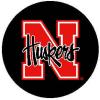
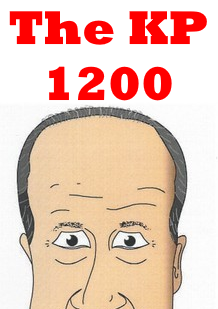
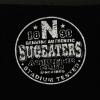
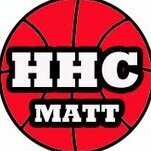
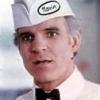
Recommended Comments
There are no comments to display.
Join the conversation
You can post now and register later. If you have an account, sign in now to post with your account.